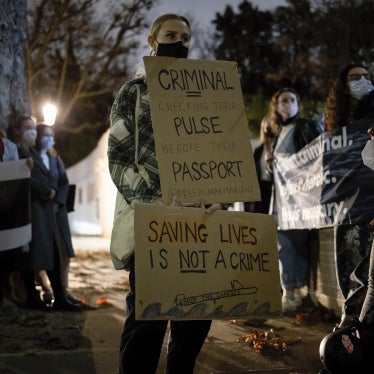We welcome the introductory statement of High Commissioner Prince Zeid and wish him all the best in his new role.
One of the key challenges the High Commissioner has highlighted is addressing the root causes of gross human rights violations, including the denial of fundamental economic and social rights, civil and political rights and the problems of discrimination and intolerance or extremism. Governments are primarily responsible for protecting human rights but when they fail the UN and its member states must act decisively and unequivocally to prevent abuse. But often the UN intervenes too late when a crisis is already underway or it fails to adequately confront perpetrators to secure the protection of civilians. In some instances the lack of resolve has led to the escalation of preventable human rights abuse. One of the major challenges, for you High Commissioner, will be to ensure that the UN as a whole, including the Human Rights Council, does not let victims of abuse down as it did in Sri Lanka. The biggest test to the UN's credibility today is its capacity to protect and respond to the needs of victims, whether it be in Central Africa Republic, South Sudan, Syria or Iraq.
Today it is necessary for the UN to ensure that rights really are put upfront and not compromised in the name of security, stability, politics or diplomacy.
One of the key obstacles preventing this Council from addressing critical situations of abuse is the double standards of its members. For this and other reasons it is important to preserve the independence of the Office of the High Commissioner for Human Rights from the politics and selectivity of the Human Rights Council.
We support the High Commissioner's view that accountability for gross human rights violations is an essential tool for combatting abuse and urge him to find ways to ensure that crimes against humanity in countries such as North Korea and Syria do not go unpunished.
The High Commissioner highlighted the plight of migrants. We would like to add our concern that migrants and refugees as well as ethnic minorities are victims of xenophobic and racist violence. Migrants and other non-citizens are also disproportionately impacted by abusive counterterrorism measures. These practices must be exposed alongside other abuses.
We applaud the High Commissioner for raising concerns about attacks against civil society and his focus on the need to create enabling environments where civil society can flourish. We raise to his attention our concerns that in China, relentless repression puts human rights defenders and their families under extreme pressure and risk; in Egypt basic freedoms of expression and association are rapidly disappearing and the space for civil society work is shrinking; in Russia domestic activists are being labelled as foreign agents, threatened and intimidated in an increasingly hostile working environment; in other countries such as Ethiopia or Bahrain independent organizations can hardly function given restrictive and punitive legislation restricting civil society space. Human rights defenders count on you High Commissioner and the Human Rights Council to hold their governments to account for such abuse.








